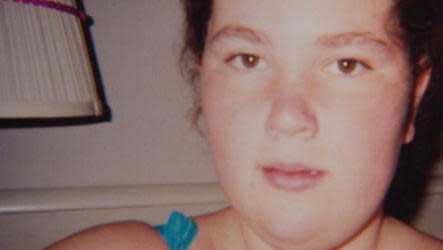 Daily Brew
Daily BrewAshley Smith’s prison death declared a homicide by Ontario coroner’s jury

An inquest concluded with a ruling Thursday that teenager Ashley Smith's shocking in-custody death was a homicide.
A five-woman coroner's jury that heard testimony in almost a year of hearings made a number of recommendations aimed at preventing mentally ill inmates in Canada's corrections system from tumbling into the kind of spiral that ended in Smith's death.
However, the National Post noted such recommendations are non-binding, which means the Correctional Service of Canada Canada can decide whether or not to implement them.
The homicide verdict means the jurors found Smith's death was neither suicide nor accidental, but that other people contributed to her death, CTV News reported.
Smith, 19, died on Oct. 19, 2007 in a cell at the Grand Valley Institution in Kitchener, Ont., choked by a strip of cloth she'd wrapped around her neck as guards looked on from her cell doorway.
The jury heard from some 80 witnesses and watched stunning videos from surveillance cameras or recorded by guards of how Smith was treated.
[ Related: Shocking prison videos central to Ashley Smith inquest ]
The images of Smith lying wedged in a corner of her cell, slowly asphyxiating as guards looked on, remain shocking today. The correctional service fought to keep it and other videos of Smith's treatment from being used as evidence.
Smith, a troubled Moncton, N.B., teen, had been in youth custody since she was 15 before being transferred to adult prison when she turned 18 in 2006. She was transferred 17 times over a one-year period, spending most of her time in segregation with her mental health problems largely untreated.
Guards trussed her up and placed a hood over her head during transports as she bounced from facility to facility to prevent her from lashing out or hurting herself.
Smith had a history of harming herself and had repeatedly tried to strangle herself with bits of cloth. The inquest heard how guards were ordered not to enter her cell as long as she was breathing. In the video, they could be heard urging her to take the cloth from around her neck.
The inquest under Coroner Dr. John Carlisle revealed a system ill equipped to cope with someone like Smith, never mind actually treating her problems. Testimony showed corrections officials were more concerned with bureaucratic procedures than the well-being of the young woman.
Three guards were charged with criminal negligence causing death but the charges were later dropped when it was learned they were under strict orders not to intervene when Smith tried to strangle herself.
[ Related: Ashley Smith inquest jury begins deliberations ]
Correctional investigator Howard Sapers concluded previously that Smith's death was preventable and called her treatment "oppressive and inhumane," the Post said.
The coroner's jury, which deliberated for more than two weeks, recommended Smith's story be used as a case-study for front-line correctional workers and that all female inmates be assessed by a psychologist within 72 hours of arriving at a penitentiary or treatment facility, CTV News reported.
The Toronto Star reported that other recommendations include having more than one federal treatment centre for female inmates, requiring psychiatrists or psychologists to authorize the use of restraints, allowing young inmates to have more contact with family members and developing a protocol for transitioning inmates transferred from the youth system to adult prison.
The jury also recommended that prison staff who deal with high-needs inmates be given mandatory respite time, the Star said.
The inquest itself was a long time coming. An initial inquest was limited to Smith's time in custody while in Ontario, about 13 weeks.
Her family, supported by prison and advocacy groups, fought successfully to expand the inquiry to cover the entire time she was in federal custody, the Star said. That set the stage for a second inquest, which began last year.


